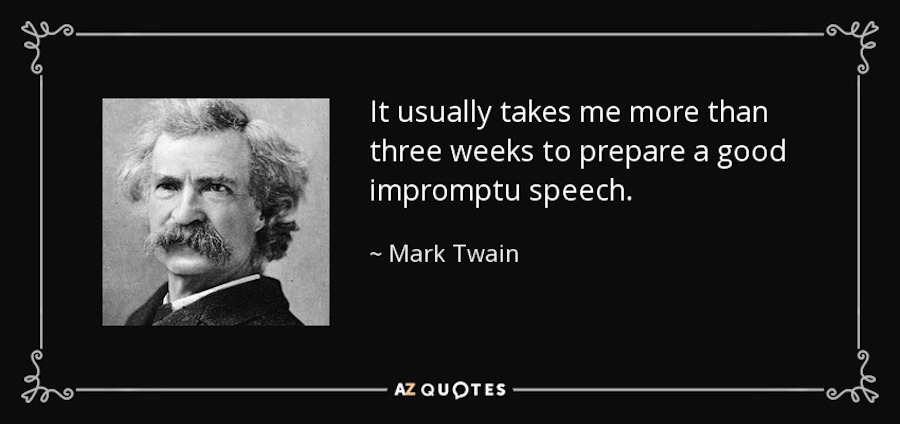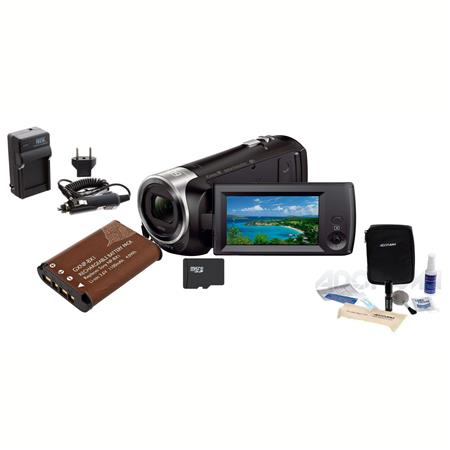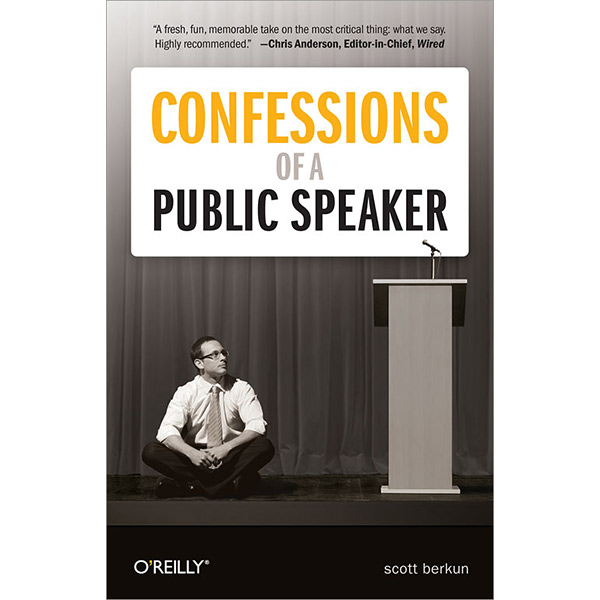- PRO Courses Guides New Tech Help Pro Expert Videos About wikiHow Pro Upgrade Sign In
- EDIT Edit this Article
- EXPLORE Tech Help Pro About Us Random Article Quizzes Request a New Article Community Dashboard This Or That Game Forums Popular Categories Arts and Entertainment Artwork Books Movies Computers and Electronics Computers Phone Skills Technology Hacks Health Men's Health Mental Health Women's Health Relationships Dating Love Relationship Issues Hobbies and Crafts Crafts Drawing Games Education & Communication Communication Skills Personal Development Studying Personal Care and Style Fashion Hair Care Personal Hygiene Youth Personal Care School Stuff Dating All Categories Arts and Entertainment Finance and Business Home and Garden Relationship Quizzes Cars & Other Vehicles Food and Entertaining Personal Care and Style Sports and Fitness Computers and Electronics Health Pets and Animals Travel Education & Communication Hobbies and Crafts Philosophy and Religion Work World Family Life Holidays and Traditions Relationships Youth
- Browse Articles
- Learn Something New
- Quizzes Hot
- Happiness Hub
- This Or That Game
- Train Your Brain
- Explore More
- Support wikiHow
- About wikiHow
- Log in / Sign up
- Education and Communications
- Communication Skills
- Public Speaking

How to Give a Great Impromptu Speech
Last Updated: March 19, 2024 Fact Checked
This article was co-authored by Lynn Kirkham . Lynn Kirkham is a Professional Public Speaker and Founder of Yes You Can Speak, a San Francisco Bay Area-based public speaking educational business empowering thousands of professionals to take command of whatever stage they've been given - from job interviews, boardroom talks to TEDx and large conference platforms. Lynn was chosen as the official TEDx Berkeley speaker coach for the last four years and has worked with executives at Google, Facebook, Intuit, Genentech, Intel, VMware, and others. There are 7 references cited in this article, which can be found at the bottom of the page. This article has been fact-checked, ensuring the accuracy of any cited facts and confirming the authority of its sources. This article has been viewed 415,404 times.
Most speeches are the result of careful planning, revision and practice. There may be times, however, when a situation demands that you give an impromptu speech with little or no time to prepare. When you find yourself in an unexpected public speaking scenario, you’ll be improvising what you say, which means you’ll have to be able to think on your feet. Following a basic structure, pacing yourself and staying composed will help you deliver an oration you can be proud of, or at least survive with minimal embarrassment.
Setting Up an Unexpected Speech

- Most of the time when you’re giving an impromptu speech, you’ll be singled out to say a few words on the spot. Since you’ll only have a few moments, preparing yourself is more about getting yourself in the right state of mind than it is knowing exactly what you’re going to say.
- If you really need to milk it, you can buy yourself some extra time by shaking hands, exchanging pleasantries or adjusting the microphone stand before speaking.

- Assume that everyone around you wants to see you succeed. This will help put you at ease. Expecting yourself to fail will only destroy your composure and make you more fearful of your audience.
- Confront the reality of your situation to avoid being blindsided by panic. Accept that you have to give a speech and then focus all your resources on giving a good one.

- Oftentimes, the more confident you make yourself appear, the more confident you’ll feel.
- Relax! Speaking in front of a crowd is not that big a deal. Even if you make a mistake, it’s not the end of the world.

- Don’t just jump right into the main idea of your speech. Test the waters by getting used to speaking and sharing a little about yourself first.
Delivering an Effective Speech

- Use simple sentences that follow a logical progression and enunciate your words carefully to keep yourself from getting tongue-tied.
- Slowing yourself down a little will give your mind time to catch up and formulate new ideas.

- Two minutes will fly by once you start speaking. Despite your reservations about being put on the spot, you may actually find it harder to give a short speech than a long one.

- A good way to give your speech a solid beginning, middle and end is to present details chronologically. For example start with “when I first became friends with John, he…”, follow that up with “now that we’re coworkers, we have more fun than ever…” and conclude with “I have no doubt that the future of our friendship will be just as entertaining.”
- When describing personal experiences, avoid sharing opinions on irrelevant controversial subjects.

- Humor is a great icebreaker and also makes it easier to hold your audience’s attention.
- Be sure any jokes you make are suitable for the age and demographic of your audience, as well as the occasion itself.
Ending on a High Note

- As with the rest of your speech, keep your conclusion brief. It’s alright to sign off with a simple “thank you for your time” or “let’s hear it for the newlyweds.”

- If you’re planning on making a specific request or appeal, as for a business conference, the end of your speech is the proper time to do it.
- The conclusion is the perfect occasion to come out with something especially heartfelt. Emotions will run high and the crowd will be moved by your sentiments.

- You don’t have to thank every important figure at the event individually. A general expression of gratitude is all that’s needed.
- Be clear who you’re supposed to hand the microphone or floor off to so that you don’t end your speech by looking around in confusion. [11] X Research source

- Impromptu speeches are mostly appraised by the willingness of the speaker to rise to the occasion. There’s no sense in being too critical of your performance since you’ll have had no time to work on it beforehand.
Expert Q&A

- Practice for unexpected speaking scenarios by volunteering to give impromptu speeches at casual events. Thanks Helpful 19 Not Helpful 2
- If you're using a microphone, stay within optimal range for your voice to be amplified. Don't move the microphone too close or too far away from your mouth. Thanks Helpful 16 Not Helpful 2
- While brainstorming, quickly come up with three or four main points to cover. Thanks Helpful 20 Not Helpful 4
Tips from our Readers
- Speak clearly and be confident. This will make you seem more credible even if some parts of your speech aren't as strong as others.
- Don't waste your time by writing full sentences, write bullet points and then expand on them when you give the speech.
- Make sure not to be too cocky or sound sarcastic, or you might not win over the audience.
- Use your own stories. Relate the topic to some of the moments in your life.

- Steer clear of subjects you don't know much about. Thanks Helpful 15 Not Helpful 3
- Be careful not to offend your audience. Not only is it bad form and will make your speech be perceived as a failure, it could actually harm your standing among your acquaintances. Thanks Helpful 13 Not Helpful 3
- Take a moment to get your appearance in order before presenting yourself. Steal a quick glance in the mirror or have a trusted friend tell you if your hair is a mess, your shirt is untucked, you have food stuck in your teeth, etc. Thanks Helpful 11 Not Helpful 3
- Don't use generic, pre-written speeches pulled from the internet or oration guidebooks. These can easily come off as stilted and inorganic. Your audience will be able to tell if you're simply going through the motions. Thanks Helpful 10 Not Helpful 4
You Might Also Like

- ↑ Lynn Kirkham. Public Speaking Coach. Expert Interview. 20 November 2019.
- ↑ http://wittcom.com/how-to-develop-confidence-speaking/
- ↑ http://sixminutes.dlugan.com/how-to-impromptu-speech/
- ↑ http://www.askmen.com/money/body_and_mind_150/192b_better_living.html
- ↑ http://www.write-out-loud.com/how-to-use-humor-effectively.html
- ↑ https://speakingwithoutnet.wordpress.com/2012/02/08/ending-on-a-high-note-the-last-sentence/
- ↑ https://www.workingvoices.com/insights/presenting-how-to-react-when-you-make-a-mistake/
About This Article

- Send fan mail to authors
Reader Success Stories
Bridget Harris
Mar 1, 2023
Did this article help you?

Veeraraghavan. Santhanam
Jul 21, 2017
Dharyl Bizu
Mar 27, 2017
Apr 30, 2017
Sameed Ahsan
Jan 28, 2019

Featured Articles

Trending Articles

Watch Articles

- Terms of Use
- Privacy Policy
- Do Not Sell or Share My Info
- Not Selling Info
Get all the best how-tos!
Sign up for wikiHow's weekly email newsletter

Improve your practice.
Enhance your soft skills with a range of award-winning courses.
How to Give an Impromptu Speech, with Examples
March 2, 2021 - Dom Barnard
An impromptu speech is when you’re asked to speak in public without prior notice. It can be one of the most terrifying speeches you’ll ever do; standing up in front of a crowd and having to speak for a few minutes without preparation is daunting, even for the most seasoned speakers.
It’s not likely to happen often, however when it does, you don’t want to be caught completely off-guard. Here are a few things to bear in mind if you’re asked to speak at short notice.
Impromptu speech definition
An impromptu speech is given with little or no preparation, yet almost always with some advance knowledge on the topic. This is sometimes referred to as “off the cuff” or “spur of the moment”.
For example, in class, a teacher may ask a student to give a short impromptu speech about a topic that was in the assigned readings. Business meetings may also start with everyone talking briefly about what they have done recently on the project.
In small informal meetings, the audience will interrupt an impromptu speech and ask questions, which helps guide the speech and the information that is presented.
When campaigning, politicians sometimes respond to reporters or voters almost anywhere and at any time.
Comedians are well known for their impromptu replies to hecklers, which are sometimes planned, but usually made up on the spot.
Tips on giving an impromptu speech
If you are about to make an impromptu speech and have a few minutes to prepare, follow these two tips:
1. Make some quick notes
The first thing you should do when asked to speak is to grab a pen and a piece of paper (or napkin – whatever you can find to write on). Jot down a few initial ideas, or even just a few words that you can expand upon during your speech.
If you don’t write anything else, make sure you’ve written down your starting and ending sentences, as these are the most important.
2. Decide on the tone
Next, think about what tone to speak in. This will depend on the type of event you’re at. For example, at a wedding, you would speak informally, and you can have fun with the speech, whereas at a business conference you would speak more formally and stick to a professional tone.

Impromptu speech frameworks
This is when it gets easy. Pick one of these frameworks to use as a structure for your impromptu speech, and you’ll instantly feel more prepared. They’re easy to remember, so you won’t have to write them down – instead write down keywords for each point.
1. The 5 Ws
Useful for when you’re speaking about a person or specific event
Following the 5 Ws provides instant structure to your speech, and you’ll be able to organise your thoughts in an easy-to-follow way. You don’t even need to change the order – starting with ‘who’ gives context to the speech and ending with ‘why’ leaves the audience with the most important, relatable point.
- Who – who is involved in the event or who is attending
- What – what event are you at and what are the common goals?
- Where – where is the event, how did the initiative the event revolves around start?
- When – is the timing of the event important? What does the future hold?
- Why – why is everyone there? Why are you there?
For example, if you’re talking about a fundraising event, you could say who started the charity, what the goals are, where it is heading, when the event is happening, and why it’s important.
2. Diplomatic framework
Useful for formal occasions such as a business conference.
For this impromptu speech, start by talking about the advantages and disadvantages of the subject topic , then end with a conclusion.
This will make your speech informative and enable you to talk for a longer period of time than the 5 Ws. It’s important not to be afraid of silence when using this framework.
Given that there is less room for creativity, you may find you need to pause to think about what you’re going to say next. While you think, you could walk up and down the stage slightly as if you are letting your last point settle, ask if there are any questions, or ask for a glass of water.
These techniques all buy you more time if your mind goes blank and save you (and your audience) from feeling awkward about a prolonged silence.
3. Storytelling
Useful for informal events such as weddings and book launches.
Storytelling is a powerful method of speaking and is an easy way of connecting with the audience . When having to speak when you aren’t prepared, start off small, then medium, and end large. Basically, talk about the event from an individual perspective, then a group or national perspective, and end with the bigger picture.
For example, if you’re asked to give a speech at a wedding , you could talk about when you met the couple and your experiences with them (small), what their relationship and marriage means to the rest of the wedding guests (medium), and end with the future of their relationship and their family legacy.
Practice impromptu speeches
Impromptu speeches, by their nature, are hard to practice for. You don’t know what the topic will be or the type of audience you’ll be facing. However, the more you practice, the better you’ll be when the impromptu situation arises.
We’ve designed an impromptu speaking exercise with the following:
- Speak about what’s on a random slide for 30 seconds each slide
- Feedback on your performance so you can identify areas that need improving
- Audio of the practice session is recorded so that you can listen back and self-evaluate your performance
You’ll practice quick thinking by talking about a series of random slides for 30 seconds each. You’ll be able to give speeches at short notice and answer questions more easily with this brain training.
Examples of an impromptu speech
Here are two examples of impromptu speeches. The videos skip the short preparation time and start when the speaker starts speaking.
Being able to deliver an impromptu speech is an important skill to have and will save you a lot of anxiety when you’re asked to speak at the last minute.
To prepare yourself for the unknown, try an impromptu practice exercise so that your brain is trained to think on the spot. Not only is this an effective way to learn, but it’s also fun!

How to Master the Art of the Impromptu Speech: 13 Practical Tips
- The Speaker Lab
- August 14, 2024
Table of Contents
Impromptu speeches can strike fear into the hearts of even the most seasoned speakers. The thought of standing up in front of a crowd with little to no preparation is enough to make your palms sweat and your heart race. But here’s the thing: with the right mindset and a few key strategies, you can absolutely crush your next impromptu speech.
Whether you’re speaking at a meeting, a wedding, or any other unexpected occasion, our pro tips will help you organize your thoughts, engage your audience, and speak with confidence. So, let’s dive in and discover how you can become an impromptu speaking rockstar!
What Is an Impromptu Speech?
If you’ve ever been asked to speak at an event without much notice, you know the feeling of panic that can set in. Suddenly, you’re expected to come up with something insightful and engaging to say in front of a crowd—with little to no time to prepare. This, my friend, is the dreaded impromptu speech.
But here’s the thing: impromptu speeches are a part of life. Whether it’s a toast at a wedding , a few words at a company meeting, or a class assignment, there will be times when you need to speak off-the-cuff. And while it can be nerve-wracking, mastering the art of impromptu speaking is a valuable skill that can serve you well in both your personal and professional life.
Learn How You Could Get Your First (Or Next) Paid Speaking Gig — Guaranteed
We receive thousands of applications every day, but we only work with the top 5% of speakers .
Book a FREE call with our team to get started — you’ll learn why the vast majority of our students start booking paid speaking gigs even before they finish our program .
Impromptu Speech Definition
So, what exactly is an impromptu speech? Simply put, it’s a speech that you have to make without much or any time to prepare. You might be given a topic on the spot, or you might have to come up with one yourself. Either way, you don’t have the luxury of crafting a carefully-written script or rehearsing your delivery.
Examples of an Impromptu Speech
Impromptu speeches can take many forms, from lighthearted toasts to serious discussions. In school, teachers might use impromptu speeches as homework assignments to help students develop communication skills and prepare for real-life situations. These speeches can be based on a wide range of prompts, from current events to celebrities to sports.
In the world of competitive public speaking , impromptu is a popular event. Participants have just a few minutes to select a topic, brainstorm ideas, outline their speech, and deliver it—all without the aid of notes. These speeches often follow a standard structure, with an introduction, body, and conclusion, and can be either serious or humorous in tone.
However, impromptu speeches aren’t just for students and competitors. In our daily lives, we might be called upon to say a few words at a birthday party, give a quick update at a meeting, or even deliver a eulogy at a funeral. The key is to be prepared for these moments, so you can speak with clarity and purpose—even when you don’t have time to prepare.
Tips for Delivering an Effective Impromptu Speech
So, you need to give an impromptu speech. Maybe it’s at a wedding, or a company meeting, or even a class assignment. Whatever the occasion, the prospect of standing up and speaking off-the-cuff can be intimidating. But fear not. With a few key strategies, you can learn to deliver effective impromptu speeches with confidence and ease.
Focus on What You Already Know
When you’re given an impromptu speech topic, it’s tempting to try to come up with something entirely new and original. But the trick is to not overthink it; you don’t have to reinvent the wheel. Instead, focus on what you already know. Draw on your own experiences, knowledge, and opinions to craft a speech that feels authentic and genuine.
For example, if you’re asked to speak about a current event, think about how it relates to your own life or work. If you’re dealing with a more abstract topic, like “happiness” or “success,” consider what those concepts mean to you personally. By grounding your speech in your own perspective, you’ll be able to speak with authority and conviction.
Pretend You’re Having a Conversation
One of the biggest challenges of impromptu speaking is the pressure to perform. When you’re standing in front of a crowd, it’s easy to feel like you need to be polished and perfect. But here’s the thing: your audience doesn’t expect perfection. They just want to hear what you have to say.
So, instead of trying to deliver a flawless speech, pretend you’re having a conversation. Imagine you’re talking to a friend or colleague, and speak in a natural, conversational tone. Use simple language and short sentences, and don’t be afraid to pause or take a breath when you need to. By speaking like a human, rather than a robot, you’ll be able to connect with your audience on a more personal level.
Finish Early
When you’re giving an impromptu speech, it can be tempting to try to fill up all the allotted time. After all, you don’t want to seem unprepared or like you don’t have enough to say. But here’s a counterintuitive tip: it’s okay to finish early. In fact, finishing early can be a sign of confidence and clarity. If you’ve made your point and don’t have anything else to add, there’s no need to ramble on just for the sake of filling time. Instead, wrap up your speech with a strong conclusion and a clear call-to-action. Your audience will appreciate your brevity and your ability to get to the point.
Don’t Panic
Finally, the most important tip for delivering an effective impromptu speech is simply this: don’t panic. It’s normal to feel nervous or anxious when you’re asked to speak without preparation. But remember, your audience is on your side. They want you to succeed, and they’re not expecting perfection.
So take a deep breath, smile, and remind yourself that you’ve got this. Focus on your message, speak from the heart, and trust that your words will resonate with your listeners. With a little practice and a lot of self-confidence, you’ll be delivering killer impromptu speeches in no time.
Impromptu Speech Frameworks and Techniques
If you’re about to give an impromptu speech and have just a few minutes to prepare, don’t panic. There are some simple frameworks and techniques you can use to structure your thoughts quickly and deliver a coherent, engaging speech. Namely, there’s the diplomatic approach, the storytelling approach, and the 5 W’s framwork.
The Diplomatic Approach
One useful framework for impromptu speeches is the diplomatic approach. Start by discussing the advantages and disadvantages of the topic, then wrap up with a conclusion. This allows you to present a balanced perspective and speak for a longer time than some other frameworks. Just remember, it’s okay to pause and collect your thoughts if needed.
The Storytelling Approach
Another effective technique, especially for more informal events, is storytelling . Begin with a personal anecdote related to the topic (the small), expand to a broader group or national perspective (the medium), and conclude with the big picture implications (the large). This creates a natural flow and helps you connect with your audience.
The 5 W’s Framework
If you’re speaking about a specific event or person, try the 5 W’s framework:
- Who is involved
- What is the event or goal
- Where is it taking place
- When is it happening
- Why is it important
Following this structure provides instant organization to your impromptu speech. You can start with the context of who and end on the most impactful note of why it matters.
No matter what approach you use, the key with any impromptu speech is to avoid rambling or getting off track. Focus on one or two main points and support them with examples, anecdotes, or facts. And if you’re really in a bind, don’t be afraid to embrace the power of brevity. A shorter speech delivered with confidence is better than a long, meandering one.
Remember, the ability to speak informally with limited preparation time is an invaluable skill. Whether it’s a class assignment, a business meeting, or a social event, being able to think on your feet and communicate effectively will serve you well. With practice and these frameworks in mind, you’ll be ready to tackle any impromptu speaking occasion that comes your way.
Mastering the Art of Topic Selection
One of the most daunting aspects of an impromptu speech can be selecting a topic to speak about with little or no advance notice. But with a few strategies up your sleeve, you can confidently rise to the challenge and even have fun with it.
Consider Your Audience
First, consider your audience and the event itself. What subjects would be appropriate and engaging for that particular crowd and occasion? If you’re at a business conference, topics related to your industry, current market trends, or professional development would be suitable. At a wedding, you might speak about relationships, love, or personal growth.
Work with What You Already Know
Next, think about your own experiences, knowledge, and passions. You’ll always speak more naturally and engagingly about a topic you genuinely care about or have firsthand insights on. Perhaps you have a unique perspective on a current event, a lesson you learned from a challenge you overcame, or an area of expertise from your studies or career. Don’t be afraid to draw from your own life and share your story.
If you’re really stumped, try a brainstorming technique like mind mapping. Jot down the first word or phrase that comes to mind, then branch out with related ideas and see where it takes you.
Make Your Impromptu Speech Unique
Another tip: embrace the element of surprise. An unexpected or even quirky topic can be memorable and help you stand out. Just be sure to keep it appropriate for the audience and event. For example, you could speak about what we can learn from children’s books or how your favorite hobby relates to success in life.
Ultimately, the best impromptu speech topic is one that you can speak about sincerely, passionately, and from a place of knowledge or experience. Trust your instincts, don’t overthink it, and remember—the speech itself is what matters most. With practice and an open mind, you’ll soon be a pro at thinking on your feet and crafting a compelling speech on the fly.
Impromptu Speaking in Various Everyday Settings
Impromptu speeches can pop up when you least expect them. Whether you’re in a business meeting, at a speaking event, or even back in graduate school, being able to think on your feet and speak off-the-cuff is a valuable skill.
In the business world, impromptu speaking often comes into play during meetings. You might be called upon to give an update on a project or weigh in on a decision. In this case, the ability to organize your thoughts quickly and articulate them clearly can make a big impression on your colleagues and superiors.
At speaking events, you may find yourself fielding questions from the audience or even being asked to fill in for a speaker who couldn’t make it. Being prepared for these impromptu moments can help you seize opportunities to showcase your expertise and connect with potential clients.
Even in academic settings like graduate school or business school, impromptu speaking skills come in handy. You might be asked to lead a discussion or debate a point in class. The more comfortable you are thinking and speaking on the spot, the more you’ll be able to contribute and make the most of your education.
The key in all these situations is to stay calm, focus on what you know, and structure your thoughts in a clear, logical way. With practice, you’ll be able to handle any impromptu speaking scenario with confidence and poise.
Find Out Exactly How Much You Could Make As a Paid Speaker
Use The Official Speaker Fee Calculator to tell you what you should charge for your first (or next) speaking gig — virtual or in-person!
Developing Your Impromptu Speaking Skills
So how do you get better at impromptu speaking? The short answer is practice. In addition, there are several specific things you can do to hone your skills.
Practice Communication and Quick Thinking
First, work on your general communication skills. The better you are at expressing yourself clearly and concisely, the easier it will be to do so on the spot. Consider joining a group like Toastmasters to get regular practice speaking in front of others.
Next, make a habit of practicing quick thinking. This could mean participating in improv classes or even just challenging yourself to come up with a short speech on a random topic in a limited amount of time. The more you practice thinking on your feet, the more natural it will become.
Stay Informed
Another helpful exercise is to stay informed on a wide range of topics. The more knowledge you have to draw upon, the easier it will be to formulate thoughts and opinions on the fly. Make a point to read widely, watch the news, and engage in discussions on various subjects.
Seek Opportunities to Improve
Finally, don’t be afraid to embrace the discomfort of impromptu speaking. It’s normal to feel nervous or put on the spot. But the more you put yourself in those situations, the more comfortable you’ll become. Over time, you’ll start to see impromptu speaking not as a source of anxiety, but as an opportunity to share your ideas and make an impact.
With dedication and practice, you can turn impromptu speaking into a strength—a skill that will serve you well in all areas of life. It may not happen overnight, but if you commit to developing this ability, you’ll be amazed at how far it can take you. From the boardroom to the stage, the power to speak with confidence at a moment’s notice is one that will open doors and create opportunities you never imagined.
FAQs in Relation to Impromptu Speech
What are the 3 parts of impromptu speech.
An intro that grabs attention, a body with your main points, and a crisp conclusion that ties everything together.
What is an example of an impromptu?
Giving a sudden thank-you speech at work when awarded unexpectedly counts as an impromptu.
How do you prepare for impromptu speaking?
Brush up on current topics. Practice thinking on your feet. Stay calm and collected no matter what comes up.
How to do a 2 minute impromptu speech?
Pick one idea. Support it with two strong points. Wrap it up clearly. Keep eye contact and breathe.
Impromptu speeches don’t have to be a source of anxiety. By focusing on what you already know, pretending you’re having a conversation, and using simple frameworks, you can deliver an engaging and effective speech on the fly. Remember, the key is to stay calm, be yourself, and let your passion for the topic shine through. With practice and experience, you’ll become more and more comfortable with impromptu speaking until it feels like second nature. So, the next time you’re called upon to give an impromptu speech, take a deep breath, smile, and know that you’ve got this. You have the skills and the confidence to captivate your audience and leave a lasting impression.
- Last Updated: August 6, 2024

Explore Related Resources
Book a call with our team to get started — you’ll learn why the vast majority of our students start booking paid speaking gigs even before they finish our program .
If you’re ready to control your schedule, grow your income, and make an impact in the world – it’s time to take the first step. Book a FREE consulting call and let’s get you Booked and Paid to Speak ® .
About The Speaker Lab
We teach speakers how to consistently get booked and paid to speak. Since 2015, we’ve helped thousands of speakers find clarity, confidence, and a clear path to make an impact.
Get Started
Let's connect.
Copyright ©2023 The Speaker Lab. All rights reserved.
Table of Contents
15 best impromptu speech tips (with examples).

- October 2, 2021

An impromptu speech is often the scariest type of speech you can make because you don’t get to prepare or predetermine what you’re going to say.
The speaker only gets a topic given in the form of a quotation, object, or proverb, and they have to do their best to deliver long-awaited answers.
Impromptu speech doesn’t have to be a full speech on its own. It can be a combination of answers to short quotations or terms provided during interviews or live discussions broadcast on the television.
While you can’t prepare yourself for the impromptu speech since you might not have any idea what you’ll be asked, you can still work on improving your speech and dialog with the help of the tips below!
I have also listed some great examples of impromptu speeches to give you an idea of what I am talking about.
Also Read : Common Weaknesses List & Examples
15 Best Impromptu Speech Tips
These 15 tips will let you know exactly how to behave during an impromptu speech, how to know what and when to say, and how to guide your speech without having too many pauses or breaks in between.
1. Hold it Together (Be Confident)

Impromptu speeches might happen suddenly for many reasons, and often, you might find yourself in front of the audience without even agreeing to it.
No matter what happens during the speech, you have to assure yourself that you’ll be alright. This means you should look up, never avoid eye contact, and breathe deeply. Thinking about something positive is a confidence boost you might need to get through the speech.
2. Focus on Your Audience
When you’re starting your impromptu speech, keep in mind that you’re not going against the audience, yet the audience will be on your side.
Therefore, you should work with the audience and focus your speech around something positive and helpful to the audience.
The goal is to have the audience listen and understand what you’re saying in your impromptu speech but also respond to the things you’re saying. Being confident in front of the audience is one thing you should do, while the other is to focus on the audience and plan a structure you’ll learn in the next tip.
3. Plan a Structure
Even though you might not be prepared for a speech, you will still be able to quickly develop a speech structure in your head as soon as you hear the topic, question, or object you’re given to talk about.
Every speech structure should include three steps and the speech can be structured around almost anything. The most popular structures are:
- Past/present/future
- Cause/effect/remedy
- Before/the event/the result
Think of the structure as a guideline of your speech that will help you get from start to finish as smoothly as possible. Another thing to keep in mind is that you can tell your structure/plan to your audience so they can easily keep up with your speech and know what to expect from it.
Check Out : Professional Development Goal Examples
4. Don’t Ramble
When you come up with a quick structure for your impromptu speech, you’re left to deliver the speech, but one thing you should keep in mind is not to ramble.
Rambling won’t get you anywhere; you’ll feel unease, and your audience won’t follow your speech easily.
Instead, it would help if you stuck to the “less is more” saying, stick to the target, and keep things short and to the point.
With a proper structure plan, you’ll have three key points (no matter what they are), so by splitting your speech into three sections, you’ll be able to judge how much time you should spend talking about each section.
5. Stand Out

Many try to stand out by actions, gestures, and confidence during their impromptu speech. While this is also important, there’s something even more important.
The first and the last sentence are the most memorable. It’s all about the primacy and recency, and most of the audience will most likely remember the first and the last thing you say.
Therefore, starting and finishing with powerful sentences that go well with your given topic and are linked to the message you deliver in the speech is super important as it will have the biggest impact if properly executed.
6. Talk as if You Were Talking to a Friend
Talking in front of the audience can be scary, but without preparation, talking in front of the audience can be even scarier.
Instead of feeling the pressure, feeling uncomfortable, or sweating buckets, you should go on with your impromptu speech as if you were talking to a group of friends.
You don’t have to fake anything, as the audience will see right through it. Instead, be yourself and try to do your best as this will always provide a better result.
Also Read : Best Executive Summary Examples
7. Tell a Relevant Story to Personalize Your Speech
The great thing about impromptu speeches is that they can go in your favor. If you don’t know what to talk about or what to include in your speech, here’s one tip that can help change the way you do your speech.
Try to think of a personal story that will be relevant to the subject of your impromptu speech. This will give you a topic to talk about, you won’t have to do any research or try to come up with facts that you will have to somehow back up, and your audience will love a personal story.
Personal stories are always easier to follow, and they’ll always go down well with any audience. Another piece of advice is to include a personal story in the middle section of your speech, but you can place it somewhere near the beginning of the speech.
8. Pay Attention to Your Voice Tone
When you take care of everything else before the speech and during the speech itself, many speakers forget to think of the voice tone.
There’s not much to overthink and you should speak slowly. Rushing might get you near the end sooner, but your speech won’t be a smooth ride.
Instead, take your time, focus on your breathing, rely on pauses, and have an impact while you deliver the key parts of the speech.
9. Make Sure to Follow Your Speech with Confident Actions

Confident actions are the most powerful body language actions that are not hard to get right, yet you might have to remind yourself to be “presentable”.
Standing tall on both your feet, not slouching over, keeping eye contact, using hand gestures, and avoiding fiddling are some of the things that will make you look confident.
Such confident actions will go well with your speech structure, confident voice tone, and relaxed, personalized speech.
Learning a couple of hand gestures will also put you at ease as you won’t have to wonder what to do with your hands during the speech.
10. Don’t Aim for Perfection
Every speaker wishes for their speech to be perfect, but an impromptu speech is the worst time to expect a perfect speech from yourself.
Therefore, it’s okay to lower the bar and focus on the execution and let the main goal be the smooth flow.
Setting the bar too high will only put you under pressure. In reality, most impromptu speeches happen due to unpredicted reasons, so if you’re put under the spotlight unwillingly and unprepared, the audience will notice, and they’ll understand, so there’s nothing to be afraid of.
Explore : Goal vs Objective – Difference & Examples
11. Practice Beforehand
You might not ever be prepared for a specific impromptu speech, but if you’ve been put into the spotlight once, you can be put under the spotlight again.
What you can do is practice quickly coming up with a speech structure on any given topic. Even if you have only a couple of minutes, you can develop a quick and concise structure and rehearse it in your head or in front of a mirror before you go in front of the audience.
And if you have a couple of hours, you can do a lot of practicing and even go through all these tips and be fully ready, no matter what the audience throws at you.
12. Use Humor to Break the Ice

No matter what the speech is about, you can always add a bit of humor to it. Don’t overdo it, but even a tiny bit of humor can help you make a better connection with your audience, ensure they pay attention to what you’re saying, and that they’re intrigued to hear what’s next.
Followed with a personalized story, you’ll have the audience hooked up until the end of the speech.
Of course, humor should come naturally, and you shouldn’t do it if you feel like you have to force it. But keep in mind that humor can be a great ice breaker, so it’s never a bad idea to keep it as a “secret weapon”.
13. The Meaningful Pause
Unfortunately, you’ll likely feel stuck or not know what to say next during your impromptu speech.
Just the thought of this can paralyze many speakers who are put under the spotlight. However, there’s a quick tip you can use to turn the block in your head into an advantage.
Instead of worrying if your audience noticed, try to “fake” a meaningful pause whenever you’re feeling stuck. During this pause, you can relax, and sooner than you know it, you will think of something.
The best thing is, your audience will never notice that “something’s wrong”, and yet this will also give them a breather and help them continue following your speech.
14. Keep Things Short
Less is more, and during impromptu speeches that can go extremely wrong, it’s better to cut your speech short and yet deliver everything you believe is valuable to the audience.
In other words, it’s better to regret not saying something than to say too much and then be on the spot from where you can’t turn back.
Also, keeping things short will help you stay in control of your impromptu speech and even look a lot more confident during your performance!
15. Try Turning the Impromptu Speech into Q&A Session

Since most impromptu speeches happen unexpectedly, not only will you have to come up with something from nothing, but you’ll also have to give the audience something you’re looking for.
Therefore, depending on the setting of your speech, you might try and turn your impromptu speech into a Q&A session, just like the journalistic interview type.
This will help you think less about what your whole speech will look like and focus on things the audience asks you in pieces.
You’ll still have full control over the answer, so turning a speech into a Q&A session is never a bad idea.
Check Out : Motivational, Funny, & Uplifting Sales Quotes
Best Impromptu Speech Examples
We’ll now take a look at some of the best examples of impromptu speeches to draw inspiration from.
University of Kentucky – Speech and Debate Team
In this impromptu speech example, the speaker only took two minutes for a quick structure plan from where she was put under the spotlight straight away.
A great start with a personalized story that leads straight into the argument. During the argument, clear signs of uncertainty are visible, but the speaker did well by slowing the speech down and taking a couple of very short meaningful pauses.
Prepared with examples which is a bonus, the speaker went through her speech structure with ease. There were moments where the speaker was nervous, but she kept it well together and even seemed confident in her speech at times.
Use gestures, confident actions, eye contact with the audience, and all other positive things you can learn from the tips above.
Closing the speech without any rumbling and getting the point straight across to the audience is a memorable way to end the speech, which is why this is one of many perfect examples of an impromptu speech.
Interesting Post : Popular Digital Marketing Quotes
Chris Gurrie Impromptu Speech Example
This is a short yet educative impromptu speech example where the speaker, Chris Gurrie, gets assigned a random topic by the audience and then guides the viewers of this video on how to plan a perfect impromptu speech structure.
While you would usually have around two minutes for the planning and practice process, Chris does it in about 30 seconds.
Chris starts his impromptu speech with many questions that come from a personalized story that then leads into the main topic of the speech.
What Chris also does is focuses on his audience and he shares his planned structure.
Chris’s impromptu speech is full of valuable information the audience might not have been aware of, which then ties to things on a larger scale. Even though Chris only took 30 seconds to work on the speech plan, he looks very relaxed, confident, with a strong game right until the end of the speech.
What’s interesting enough is that if you didn’t know this was an impromptu speech, you might not even know. Therefore, this is a perfect example of how good you can get at impromptu speeches without knowing the subject beforehand.
Toastmaster International – Impromptu Speaking
If you prefer learning from a video example, this four-minute video is everything you’ll need to gain the confidence to do an impromptu speech.
In this example, you’ll learn opportunities where impromptu speaking might be required. Of course, all of the opportunities are the ones where you don’t have much time to prepare.
However, with the techniques covered in this example video, you’ll learn how to manage last-minute speeches.
Lastly, the video will teach you all the benefits of holding impromptu speeches.
Even though this is an educational-type video, if you have a better look, you would notice that this whole video is less than five minutes long, and it’s scripted in a way to serve as yet another impromptu speech example.
Therefore, as you learn how to perform an impromptu speech, you’re watching an impromptu speech which is a brilliant idea.
Preparing yourself for an impromptu speech is only half the job, so in this video, you also learn how to deliver your impromptu speech with more useful tips.
Impromptu Speech Example: Thesis-Point-Story Format
Planning a structure for your impromptu speech is super important. The thing about the structure is that you can develop any three- or four-step process that will get you through the speech.
This video is a perfect example of a thesis-point-story format where Chris, the speaker, gets assigned a random topic from where he creates the thesis-point structure, shares it with the students, and gets down to the speech itself.
With word play, Chris slowly introduces the topic to the audience, and while he speaks to his students as his friends, he is getting down to the story’s main point.
As Chris goes through his impromptu speech, you can also notice that he asks the audience plenty of questions, and by answering his questions, he is slowly revealing the whole story behind the point of his impromptu speech.
Even though this example might be a bit complicated to understand, you can also learn from Chris’s body language, how he speaks, and how he controls his speech as he’s a highly skilled impromptu speaker.
Angel Anderson – Impromptu Speech Example
In this four-minute impromptu speech example video, Angel Anderson teaches you exactly what impromptu speaking is, how to practice it, and even shows an example full of important tips that can help you develop the same skills.
Angel uses a question-style topic, after which he sets the timer for two minutes for his impromptu speech.
With this type of question, Angel starts his impromptu speech with a personal story that gets interesting, which ensures that the audience follows him.
Not only did Angel answer a question, but he also shared an anecdotal story, and even then, he shared some more information connected to this story.
By far, Angel’s video is not the perfect impromptu speech, but it’s a real example of how easily you can work on your impromptu speech, practice, and learn as you progress.
Of course, this example is ideal for all interview-type impromptu speeches, which can be as hard as the topic-type speeches.
Impromptu speech can seem scary at first, but with plenty of preparation and practice, you will be able to speak on any topic without much preparation.
These 15 tips are everything you’ll need to start, develop, and finish your impromptu speech while being confident both verbally and nonverbally.
On top of that, these five examples show you how impromptu speech is done first-hand. Remember that you shouldn’t aim for perfection, but even tiny improvements are a good step forward to achieving a decent impromptu speech.
More to Explore

Ringing In The New Year With Tech Resolutions
As the calendar turns to a new year, many of us pledge to exercise more or eat healthier. But in our increasingly digital world, perhaps it’s time to consider some tech-focused resolutions that can significantly improve our daily lives, productivity, and digital well-being.

5 Limitations of Free Anonymous Email Services That Might Impact Your Business
At a time when first impressions are increasingly made through email interactions, could your choice of email service be secretly sabotaging your business success?


15 Small Business Ideas For Teenagers To Get Started
The entrepreneurial spirit knows no age limit, and teenagers today have unprecedented opportunities to start their own businesses.

How To Start A T-Shirt Printing Business From Home: A Beginner’s Guide
Ever dreamed of turning your creative ideas into a thriving business? Imagine watching your unique t-shirt designs being worn by people around the world, all while working from your living room.

15 Genius Ways To Organize Your Mobile Apps For Maximum Productivity
Our smartphones are like command centers for both our personal and professional lives. With multiple apps for doing a task, there’s hardly anything that we can’t do today using our mobile phones.

10 Best Print On Demand Jewelry Companies In 2024
Do you want to start a jewelry business, but you don’t have money to invest in stock?
21 Breakthrough Motivation Secrets
Are you struggling to keep your team inspired? Every Monday, get one powerful idea to transform how you lead. No fluff. Just actionable strategies that work.
Deliver Your Best Every Day!
Give an Impromptu Speech That Wows (with Examples)
“Could you say a few words about teamwork?”
You’re at a meeting, and the question lands on you like a surprise punch. No notes. No preparation. Just you, your voice, and your ability to think fast.
Panic might be your first reaction, but let me tell you a secret: an impromptu speech isn’t about perfection—it’s about connection. When you focus on what matters most—the audience—you can turn even a last-minute request into a moment that wows.
This guide will show you how to craft compelling content, organize your ideas with clarity, and deliver with confidence. Let’s start with the foundation: your content.
Step 1: Crafting Compelling Content
Content is the heart of any speech, impromptu or not. But here’s the kicker: it’s not about you. It’s about your audience.
Know Your Purpose
Before you speak, ask yourself:
- Why am I speaking?
- What does the audience need from me?
- How do I make this valuable to them?
The answers to these questions shape your content.
Let’s say your topic is teamwork. The content of your speech will shift based on your purpose:
- To inspire: You’ll focus on why teamwork matters and share an uplifting example.
- To inform: You’ll highlight key elements of effective teamwork and how to implement them.
- To persuade: You’ll make a case for why teamwork is essential and address potential objections.
Example: If you’re inspiring your team after a tough quarter, your speech might focus on resilience:
“Teamwork is what carried us through one of the hardest quarters we’ve faced. When challenges came, we didn’t face them alone—we faced them together. That’s the power of a strong team.”
If you’re persuading executives to invest in team-building, you’ll highlight ROI:
“Organizations with strong teamwork outperform competitors by 21%. If we invest in building better collaboration, we’ll see both immediate and long-term gains.”
Same topic, different focus.

Understand Your Audience
Every audience has its own dreams, challenges, and aspirations. Your job is to tap into those.
For example, imagine you’re speaking to three different groups about teamwork:
- What they want: Results, efficiency, profitability.
- Your content: Emphasize how teamwork drives measurable success.
- What they want: Support, recognition, belonging.
- Your content: Highlight the human side of teamwork—how it creates trust and reduces burnout.
- What they want: Relevance, inspiration, fun.
- Your content: Use relatable examples, like sports or group projects, to make teamwork exciting.
Example for Executives:
“In high-performing teams, productivity improves by 20%. Teamwork isn’t just a soft skill; it’s a competitive advantage.”
Example for Frontline Workers:
“When we support each other as a team, work feels lighter. Teamwork means no one carries the load alone.”
Example for Students:
“Think about the last time you crushed a group project. That feeling of winning together? That’s teamwork in action.”
Build Around a Core Message
Impromptu speeches don’t give you time to wander. You need one clear, memorable message that anchors your speech.
Here’s a trick: Summarize your content in one sentence.
For example: “Teamwork is about collaboration, trust, and shared success.”
This core message guides everything else. Every point, example, and story should tie back to it.
Adapt on the Fly
Sometimes, you don’t know your audience well. That’s okay. Start broad, then adjust based on their reactions.
Let’s say you’re asked to speak about teamwork at a company event. You open with a general message:
“Teamwork is the foundation of every great achievement.”
Then, as you see nods or puzzled faces, you pivot. If they’re engaged, dive deeper. If they seem unsure, simplify:
“What I mean is, when we work together, we achieve things none of us could do alone.”
Serve Your Audience An impromptu speech isn’t about showing off your knowledge—it’s about serving your audience. Define your purpose, understand their needs, and deliver content that resonates.
Next, we’ll explore how to organize your speech with a strong introduction, clear body, and memorable conclusion. Ready?

Step 2: Organizing Your Speech
Content is the heart of your speech, but organization is its skeleton. A clear structure keeps your thoughts in order and helps your audience follow along—crucial for impromptu speaking.
When time is short, think of your speech as a simple story with three acts: Introduction, Body, and Conclusion.
Introduction: Hook Them Fast
Your introduction is your chance to grab attention and set the tone. Even in an impromptu setting, a strong opening gives you momentum and makes the audience curious to hear more.
Here are three effective ways to start, using teamwork as the topic:
1. Start with a Story
Stories create instant connection. They’re relatable, memorable, and human.
“When I joined this company, I was part of a team that struggled to communicate. Deadlines were missed, frustrations grew, and morale dropped. But one day, something changed…”
The audience wants to hear how the story ends—and they’ll stay engaged to find out.
2. Ask a Question
Questions draw people in and make them reflect.
“Have you ever been on a team where everything just clicked? Where everyone supported each other, and success felt effortless?”
Asking a question gets the audience thinking and primes them for your message.
3. Use a Surprising Fact or Statistic
A shocking or unexpected statement grabs attention.
“Did you know that 86% of employees say a lack of teamwork leads to project failure? That’s why teamwork isn’t just a buzzword—it’s a business essential.”
Facts appeal to logic and make your speech feel credible.
Pro Tip: Whatever method you choose, keep it short. Your introduction should set the stage, not steal the show.
Body: Build the Core of Your Speech
The body of your speech is where you deliver your key points. Even in an impromptu setting, it’s possible to structure your ideas clearly.
Three Key Points
A simple but effective approach is to focus on three key points . Why three? It’s enough to provide depth but not so much that you overwhelm the audience.
For example, if your topic is teamwork , your points might be:
- Communication
- Shared Goals
Here’s how you could develop each:
- Point 1: Trust “Trust is the foundation of any great team. When we trust each other, we can take risks, share ideas, and admit mistakes. Without trust, collaboration falls apart.”
- Point 2: Communication “Good communication keeps a team aligned. It’s not just about talking; it’s about listening and making sure everyone is on the same page.”
- Point 3: Shared Goals “A team without shared goals is just a group of people. When we’re working toward the same vision, we pull together and achieve more.”
Use Examples
Examples make abstract ideas concrete.
- For trust: “Last quarter, our team faced a major challenge. Because we trusted each other, we were able to brainstorm openly and find a solution quickly.”
- For communication: “Think of a relay race. If one runner doesn’t pass the baton clearly, the whole team loses. Communication works the same way.”
Stay Flexible
If you only have time for one point, focus on your strongest idea. If time allows, expand with additional points or stories.
Conclusion: End with Impact
A strong conclusion ties everything together and leaves a lasting impression. The key is to circle back to your main message and leave the audience with something memorable.
Here are three ways to conclude your speech:
1. Restate Your Core Message
End by driving home your main point.
“In the end, teamwork isn’t just about working together—it’s about trusting each other, communicating clearly, and striving for the same goals. When we get that right, the results are extraordinary.”
2. Call to Action
Give the audience something to do next.
“The next time you’re in a team meeting, ask yourself: What can I do to build trust, improve communication, or align with our shared goals? Small actions create big results.”
3. Use a Closing Story or Quote
Leave them with something memorable.
“As Helen Keller once said, ‘Alone we can do so little; together we can do so much.’ That’s the power of teamwork.”
Pro Tip: Your conclusion is your final chance to connect. Make it concise, clear, and confident.
Example of an Impromptu Speech: Teamwork
Here’s how you could put it all together in less than two minutes:
Introduction:
“Did you know that 86% of employees say a lack of teamwork leads to project failure? That statistic says a lot, but here’s the good news: we can change that.”
“It starts with trust. When we trust each other, we take risks and share ideas without fear of judgment. Next, communication is key. Think of a relay race—if the baton isn’t passed clearly, the team loses. Finally, teamwork thrives on shared goals. When we’re united by a common vision, we accomplish things we couldn’t do alone.”
Conclusion:
“So, remember: trust, communication, and shared goals. If we focus on these, we’ll not only achieve success—we’ll enjoy the journey together.”
Make Your Speech Flow When organizing your speech, think Introduction, Body, Conclusion —a natural flow that helps you and your audience stay on track. Keep it simple, and adapt based on time and context.
Next, we’ll cover delivery: how to speak with confidence, connect with your audience, and leave a lasting impression. Let’s make it unforgettable!

Step 3: Delivering Your Speech with Confidence
Content and organization set the foundation of your speech, but delivery is what brings it to life. A well-delivered impromptu speech engages your audience, holds their attention, and leaves a lasting impression.
In this section, we’ll explore the essential elements of delivery— eye contact, facial expression, vocal variety, gestures, body language, and visual aids —with practical examples to help you shine.
1. Eye Contact: Build Connection
Your audience needs to feel that you’re speaking to them—not at them. Eye contact creates trust, shows confidence, and keeps your audience engaged.
Tips for Eye Contact:
Sweep the room: If speaking to a group, look at different sections of the audience. Avoid staring at one person or, worse, the floor.
Hold for a thought: Pause on one person for a full thought, then move to another. This feels natural and personal.
Example: You’re speaking to a team about trust . Instead of scanning nervously, focus on one colleague and say:
“Trust is the foundation of every great team.” Then shift to another person for your next thought. This keeps everyone feeling included.
2. Facial Expression: Show Emotion
Your face is a canvas for your message. A smile can warm the room, while raised eyebrows convey surprise or excitement.
Tips for Facial Expression:
- Match your expression to your message. If you’re discussing challenges, show seriousness; if you’re celebrating success, smile.
- Avoid a blank or overly serious face—it can come off as disinterest or nervousness.
Example: Talking about team achievements , smile and let your enthusiasm show:
“We hit every milestone this quarter—because of teamwork!”
Your joy reinforces your words and energizes your audience.
3. Vocal Variety: Keep It Dynamic
Monotone kills speeches. Vocal variety—changes in pitch, volume, and pace—keeps your audience hooked.
Tips for Vocal Variety:
- Emphasize key words: Slow down and stress important phrases.
- Use pauses: Silence can be powerful. It gives your audience time to absorb your message.
- Shift tone: Use a conversational tone for stories and a firm tone for calls to action.
Example: Discussing communication , you might say:
“Good communication… (pause)… can make or break a team.” Pause after “communication” for emphasis, then confidently deliver the rest.
4. Gestures: Enhance Your Words
Gestures help illustrate your points and make your speech more dynamic. The key is to use them purposefully—too much can be distracting.
Tips for Gestures:
- Keep them natural. Avoid stiff or overly rehearsed movements.
- Use open, inviting gestures to show confidence.
- Align gestures with your message.
Example: Talking about shared goals , use your hands to illustrate alignment:
- “When everyone is moving in the same direction…” (gesture with both hands pointing forward)
- “… we achieve extraordinary results.” (spread hands wide to symbolize success)
5. Body Language: Project Confidence
Your posture and movements say as much as your words. Confident body language makes your audience believe in your message.
Tips for Body Language:
- Stand tall, with shoulders relaxed and feet shoulder-width apart.
- Avoid pacing or swaying—it signals nervousness.
- Use intentional movements, like stepping forward to emphasize a point.
Example: While discussing trust , step forward slightly and say:
“Trust is built when we show up for each other.” The movement reinforces your message and shows conviction.
6. Visual Aids: Make It Memorable
In an impromptu speech, you might not always have slides or props, but if you do, keep them simple and supportive.
Tips for Visual Aids:
- Use visuals sparingly—they should enhance your message, not overshadow it.
- If no slides are available, use physical props (like a pen or notebook) to illustrate points.
- Don’t read from slides—use them as prompts.
Example: If discussing team communication , draw a quick diagram on a whiteboard:
- Sketch a circle to represent team members and arrows to show how information flows.
- Say: “When communication looks like this—everyone connected—we succeed.” Visual aids help solidify abstract ideas.
A Delivery Example
Let’s revisit the teamwork topic with all the elements of delivery in action:
Opening with Eye Contact and a Smile:
Look at the audience, smile, and say: “Have you ever been part of a team where everything just clicked? Where trust, communication, and shared goals made success feel effortless?”
Using Facial Expression and Gestures to Engage:
- Smile warmly as you say: “That’s the power of teamwork.”
- Spread your arms slightly to illustrate unity: “When we work together, we achieve more than we ever could alone.”
Adding Vocal Variety for Impact:
- Lower your voice for emphasis: “But here’s the challenge…” (pause)
- Then raise it slightly: “When communication breaks down, teams fail.”
Moving with Purpose:
- Step forward as you say: “Trust is the foundation.”
- Turn slightly to engage another section of the room: “And communication keeps us aligned.”
Ending with a Memorable Gesture and Tone:
- Raise your hand to symbolize unity: “When we share the same goals, success isn’t just possible—it’s inevitable.”
- Smile and look around the room: “That’s the power of teamwork.”
Connect with Your Audience
Delivery is about more than words—it’s about how you connect. When you master eye contact, facial expressions, vocal variety, gestures, body language, and visual aids, you’ll turn any impromptu speech into a moment that wows.
And remember, every time you speak is a chance to inspire, inform, or persuade. Your audience isn’t expecting perfection—they’re hoping for connection.
Now go out there and deliver a speech that they’ll remember.

Public Speaking Articles
Public speaking is one of those things that feels terrifying until you realize it’s just talking—something you’ve been doing your whole life. The magic isn’t in being perfect; it’s in being real.
Every big idea, every movement that’s ever changed the world started with someone standing up and saying, “Hey, listen to this!” That could be you. Whether it’s a room full of strangers or a quick pep talk with your team, your voice has the power to shift perspectives, spark action, and leave a lasting impression.
The trick is to stop thinking of speaking as a performance and start seeing it as a gift. You’re not there to dazzle; you’re there to share. Share your ideas, your energy, your humanity.
Sure, you’ll mess up sometimes. (Spoiler: nobody cares as much as you think.) But every time you open your mouth, you’re practicing, learning, getting better. So embrace the awkward pauses, the sweaty palms, and the occasional word salad. That’s the good stuff. That’s growth.
Public speaking isn’t just a skill—it’s a superpower, and it’s one that can help you play your A-game and make a difference in the world.
- 12 Ways to Improve Public Speaking Skills
- Impromptu Speeches: A Step-up Guide for Spontaneous Speakers
- 12 Easy Ways to Overcome Fears in Public Speaking
- 10 Ways to Develop Public Speaking Styles
- 10 Ways to Generate Impromptu Speech Ideas
- 10 Ways to Master Impromptu Speaking Skills
- How to Prepare Yourself for Public Speaking
- Crafting Motivational Speeches That Sell
- Confidence Is Contagious: How Your A-Game Fuels It
- Deliver Speeches That Inform, Inspire, and Influence People
- How Public Speaking Turned My Life Around
- Keep Your Audience Engaged from Start to Finish
- The Power of Anecdotes in Public Speaking
- Adapt Like A Pro: Enhancing Your Public Speaking Skills
- Master Extemporaneous Speaking
- LinkedIn Play your A-game every day—connect with me on LinkedIn !
Take Your Public Speaking Skills to the Next Level
You’ve taken the first step by reading these posts. Now, imagine how much more confident and effective you’ll be with these additional resources:
- 🎓 Free Training : A comprehensive introduction to mastering the art of impactful speaking.
- 📘 Public Speaking Guide : Your go-to resource for structured, effective communication.
- 🗣️ Impromptu Speeches Guide : Handle any unexpected speaking challenge with ease and poise.
- 🎤 Presentation Skills : Deliver presentations that captivate and inspire your audience.
- 💡 Short Motivational Speeches : Find the right words to move and motivate others.
Need a partner to help you refine your skills or navigate specific challenges? Don’t hesitate to reach out to me . Whether it’s coaching, workshops, or strategy, I’m here to help you make your voice count.
Let’s elevate your public speaking together! Keep the momentum going!
Training Programs

The CEO Speaker Bootcamp: Craft Impactful Executive Speeches

Impromptu Speech Bootcamp

The Persuasive Speaker Bootcamp

A-game Workshops
About the author.
Jef Menguin
Leaders who play their A-Game daily elevate the entire team. They focus on high-impact tasks and lead by example.
Develop leaders like this, and your organization will thrive.
Start typing and press enter to search

12 effective impromptu speech tips you should use
- Filed under: Featured articles , Public speaking articles , Public speaking tips and tricks , Speaking tips , Speech delivery , Speech preparation
An impromptu speech is something most people are afraid of even more than public speaking . There’s hardly any time to prepare, and, sometimes, this speech must be longer than just a few minutes.
So, what is an impromptu speech? An impromptu speech is a speech which is given without any thorough preparation. It is five- to eight-minute speech with a characteristically short preparation time of a couple of minutes.
This can be frightening, but it’s not the hardest of things. Today, I’ll give you 12 good tips you can use in the future. That said if you want even more information about impromptu speech and public speaking then definitely check out this list of the best public speaking books I have compiled for you.
Table of Contents
12 impromptu speech tips (short version)
Video: 12 effective impromptu speech tips you should use.
Why give an impromptu speech? Here are the reasons:
- The actual speaker is running late or you have to give a speech totally last moment instead of the actual speaker.
- At a meeting , you are unexpectedly asked to give a longer overview of what’s happening.
- You are forced (or decide for yourself) to take part in a discussion (e.g., parents’ meeting).
- A cheering speech at a birthday party or other similar event (e.g., colleague’s birthday).
- An unexpected (or even agreed beforehand) interview .
- You must unexpectedly introduce yourself at an event or talk about your area of activity .
- Unexpected questions during a Q&A session following your presentation.
Remember that the better public speaker you are, the more people will be pointing in your direction, because no-one wants to go out there. So, get ready to be teased, „James, we all know you can do it so well…“
12 impromptu speech tips that will make you shine
1. a good speech has a structure.
There are several speech structures, but I use the one called the FAT system.
- F = Feeling . Express how you feel about the subject of your speech
- A = Anecdote . Tell a story related to it. If it’s funny, even better.
- T = Tie back . Link the story to the subject.
F = Feeling
Share your feelings about the subject. If it makes you sad, show it. If it makes you happy, express it with all your nature.
A = Anecdote
The anecdote doesn’t necessarily mean making a joke. Indeed, if your story is funny and related to the subject, that’s just great. Keep in mind that the make-a-point-tell-a-story approach usually works well.
T = Tieback
When you’re done with your story, keep in mind that now is the time to link it to the subject. For example: if your topic is „Your Favourite Car Brand“ and you told a good story about which bad (or good) cars you’ve come across, now is the time, to sum up, the topic pointing out why you chose a particular car brand.
2. Practice giving a speech
Mark Twain once said, „It usually takes more than three weeks to prepare a good impromptu speech“. In other words, it can be practiced. The more you practice and the more topics you go through, the easier it will be .
You can practice alone or with your friends. One of the ways to do it with your friends is to play a game. Scroll down for instructions!
As a side note, I wrote an article (with 10 effective tips) about how to practice a speech. You can read it here.
3. Go on stage and give speeches whenever you get an opportunity
The more experience you gain, the better you will be able to handle unexpected situations. You’ll also learn how to deal with tricky questions and smarty pants.
Recommended books
How to Deliver a TED Talk: Secrets of the World's Most Inspiring Presentations
Jeremy Donovan
Resonate: Present Visual Stories that Transform Audiences
Nancy Duarte
Confessions of a Public Speaker
Scott Berkun
Talk Like TED: The 9 Public-Speaking Secrets of the World's Top Minds
Carmine Gallo
The Checklist Manifesto: How to Get Things Right
Atul Gawande
The First 20 Hours: How to Learn Anything... Fast!
Josh Kaufman
By the way, I did my MA thesis on the fear of public speaking, in which I also studied the way in which the level of the fear of public speaking and the frequency of its occurrence is related. It revealed that the people who do public speaking more often suffer from the fear of public speaking significantly less than those who do it rarely.
Have a look at the figure below:

4. Believe you can do it
If you only focus on the idea of potentially failing, you focus on the wrong thing . You’re not the most important person at the moment of giving a presentation. Your listeners are. Anyway, if you don’t believe in yourself, why should I as a listener? Oftentimes, the audience is your allie , and you should keep that in mind at all times.
Why is the audience your Allie ? Because the better you do, the more they will benefit from your presentation.
5. You could mention it’s an impromptu speech
An impromptu speech is just like any other speech, that is, it’s not a good idea to start your speech with an excuse. If the listeners are aware of the situation anyway, it might be worth mentioning. Do it in a brief and professional manner and avoid futile apologies.
Briefly explain why the speech is improvisation and get to the subject. If you use the above-mentioned FAT structure, it’ll be much easier for you to give a good speech.
6. Don’t forget about humor
For example: if you mention that it’s an impromptu speech, make a joke about the situation . Already today, it would be a good idea to think of a funny story or two about yourself for such occasions.
At the same time, keep in mind that if you’re not particularly good at making jokes , don’t try to overdo it . Equally important, never say „I’m going to tell you a funny story“ because you set the expectations high. Just say that you’re going to tell a story, and if the audience finds it funny, great success!
7. Think of universal introductions or stories to use in the future
Getting started with a story is always a good idea, especially, if it’s a personal one. For example, you can start with a story of how you had to give a speech once and what went wrong.
Sometimes, it may happen that you have to give a speech so unexpectedly that there’s no time whatsoever to think of a story introducing the subject. In this case, after making an introduction, you can make a transition in the form of a joke about yourself.
For example, you could say, „Some of you will wonder how this story is related to my presentation. It’s not, really… I just had to give a speech so unexpectedly that this story was the first thing that sprang to mind. Speaking of the subject… (and you go on with the actual subject)“.
But there’s a lot more to it so I wrote a complete guide on how to make a speech introduction that grabs the attention which you can read here.
8. If you get stuck, pretend it’s a meaningful pause
Remember that one speaker from Ancient Greece once summed up the fundamental truths about public speaking tips:
- Speak clearly to be heard.
- Stand straight to be seen.
- Be quiet to be enjoyable.
Take your time and try to avoid unnecessary voiced sounds during the pause – most people won’t even realize there’s something going on.
9. Customize the topic and make it your statement
Sometimes, it’s the only solution. For example: if I’m unexpectedly asked to talk about maths for 15 minutes, I have to admit this is a subject I don’t know anything about.
So I have a couple of stories about how I wasn’t very good at maths at school and that there’s one thing I’m very good at when it comes to maths. Calculating percentages by cross-multiplying. Then, I’ll be talking about how it really helped me in practice and how the audience could use it.
To sum it up, if the subject is something you don’t know much about, you will adjust it a little and change the focus , talking about it from a perspective you feel more confident about.
10. In relation to your speech, find answers to the following five questions:
- What (or about what)?
For example: if you have to talk about the fact that you’re afraid to speak publicly, your speech could answer the following questions:
- Who are you?
- What have you done to cope with it and what could others learn from it?
- When did you succeed (or fail) in relation to the subject (add a short story here)?
- Where could your tips be used?
- Why is it important at all?
It’s essentially the same as the FAT structure but explained from another angle.
11. Turn your presentation into a Q&A session
If you have no idea what to say in the beginning, go for a Q&A session. For example, your topic is „How to Give a Speech“, but you don’t have any good idea. So you start with something like „Dear all, today, we’ll be talking about how to give a speech. How many of you have given an impromptu speech or done public performances unexpectedly? Yes, Paul, what were the circumstances?“
This way, you’ll get hints from the listeners about what you could talk about, and you can smoothly go over to your speech.
But if you say „Today, we’ll be talking about how to give a speech. First of all, you’ll be able to ask a few questions about what you find most important when it comes to our topic“, the questions asked by the listeners will give you an idea of what you should talk about.
Keep in mind that you have to encourage your listeners as they may be too shy to ask questions. If no-one asks a question, go back to one of the tips above.
12. Don’t blab all the time
To be brief is always a good thing . The longer you talk, the greater the likelihood that your speech becomes somewhat boring , and, as a result, the listeners lose interest.
An impromptu speech developing game you can play with your friends
It’s quite common to play different games in larger or smaller groups. The game I recommend is suitable for groups of all shapes and sizes.
- Beginner : On a piece of paper, each participant puts down a topic they are able to talk about for a minute or two, without preparation.
- Advanced : On a piece of paper, each participant puts down a completely random topic.
- Put all the topics together. Now, in turns, you pick one topic and start talking about it for about a minute or two, without preparation. If you pick the topic written by you, you put it back and pick a new one.
When one participant is finished, the next participant picks a new topic and starts with their speech.
- Other listeners shouldn’t interrupt the speaker during their speech.
- It is advisable to give feedback, especially by the person who has come up with the topic.
How does this game improve giving an impromptu speech?
First, you get used to talking about topics you don’t know anything about at a first glance.
Second, you get a wealth of experience in terms of how to customize a topic. For example: if you pick a topic entitled „My Trip to Spain“, but you’ve never been to Spain, you’ll be talking about „What I Could Do on my Next Trip to Spain“.
Third, you get feedback from other people about how you did. Pretty soon, you’ll discover that you’re actually much better than you think.
Finally, the more you play this game, the more comfortable you will feel in different situations . You will learn from experience, right?
An impromptu speech can be frightening, but it’s not the hardest of things. It’s all in your head, and you can start fixing it now.
Have a look at my 12 impromptu speech tips and think of the situations where you can use one or the other. And then… go on stage. First thing. The more you practice public speaking , the better you get.
Related questions
What is a persuasive speech? The main objective of a persuasive speech is to make your listeners do what you want them to do. For example, „buy my product“, „vote for me“, „believe what I’m talking about“, and so on. ( full article here)
What is the elevator pitch? An elevator pitch is a well-thought, meaningful, and repeatedly practiced brief (about 30-60 seconds long) overview of who you are, what you offer, and how your partner can benefit from it ( full article here ).
What is audience analysis? Audience analysis gives you the opportunity to get as much information about the background of your listeners as possible. Using this information, you can prepare your message so that it builds on the interests, needs, and expectations of your listeners. ( full article here )
Posts about public speaking you may also like

11 tips on how to write a great persuasive speech
In the case of a good persuasive speech, the speaker’s argumentative skills matter. You may well have the best arguments in the world, but if

Prepared speech: 10 effective tips on how to practice a speech
The poorer your preparation is and the less work you do, the greater the probability that no-one can relate to your speech, in a way

Is Public Speaking Required In College?
Are you worried about public speaking requirements in college? Are you wondering if there are other ways to demonstrate your knowledge without having to stand
- Tags: Art of public speaking , Effective speaking , Good speech , Impromptu presentation , Impromptu speaking , Impromptu talk , Making a speech , Prepare a speech , Presentation skills tips , Presentation techniques , Speech skills , Speech tips , Writing a speech
Recommended gear

Best Portable Speakers For The Presentations

Best Video Cameras for Public Speakers

Best rresenter remotes for public speakers

Best Portable Thumb Drives And Hard Drives for the Presentations
Who is janek tuttar.
My name is Janek Tuttar , and I am the founder and author of Speak and Conquer website.
I have been teaching public speaking at Estonian Entrepreneurship University of Applied Sciences
Here, I am sharing the wisdom of how to cope in different public speaking situations.
More information about Janek »

Share this post

Hi! My name is Janek Tuttar, and I am the founder and author of SpeakAndConquer.com.
I have been teaching and blogging about public speaking since spring 2007. Here, I am sharing the wisdom of how to cope in different public speaking situations.
Send me an e-mail: [email protected]
LEGAL INFORMATION
This site is owned and operated by Janek Tuttar. SpeakAndConquer.com is a participant in the Amazon Services LLC Associates Program, an affiliate advertising program designed to provide a means for sites to earn advertising fees by advertising and linking to Amazon.com.
This site also participates in other affiliate programs and is compensated for referring traffic and business to these companies.

Best teleprompters

Best Computer Mice for the Presentations

Best Laptop Backpacks for Public Speakers

IMAGES
COMMENTS
Mar 19, 2024 · Most of the time when you’re giving an impromptu speech, you’ll be singled out to say a few words on the spot. Since you’ll only have a few moments, preparing yourself is more about getting yourself in the right state of mind than it is knowing exactly what you’re going to say.
Mar 2, 2021 · Impromptu speech definition. An impromptu speech is given with little or no preparation, yet almost always with some advance knowledge on the topic. This is sometimes referred to as “off the cuff” or “spur of the moment”. For example, in class, a teacher may ask a student to give a short impromptu speech about a topic that was in the ...
Aug 14, 2024 · Examples of an Impromptu Speech. Impromptu speeches can take many forms, from lighthearted toasts to serious discussions. In school, teachers might use impromptu speeches as homework assignments to help students develop communication skills and prepare for real-life situations.
Oct 2, 2021 · An impromptu speech is often the scariest type of speech you can make because you don’t get to prepare or predetermine what you’re going to say. The speaker only gets a topic given in the form of a quotation, object, or proverb, and they have to do their best to deliver long-awaited answers.
Nov 27, 2024 · Facts appeal to logic and make your speech feel credible. Pro Tip: Whatever method you choose, keep it short. Your introduction should set the stage, not steal the show. Body: Build the Core of Your Speech. The body of your speech is where you deliver your key points. Even in an impromptu setting, it’s possible to structure your ideas clearly.
An impromptu speech can be frightening, but it’s not the hardest of things. It’s all in your head, and you can start fixing it now. Have a look at my 12 impromptu speech tips and think of the situations where you can use one or the other. And then… go on stage. First thing. The more you practice public speaking, the better you get.